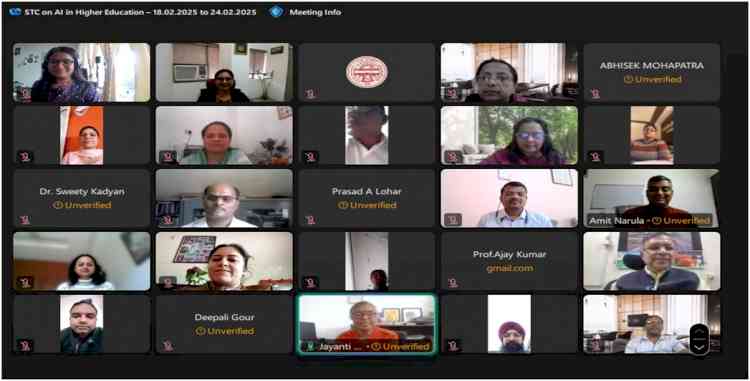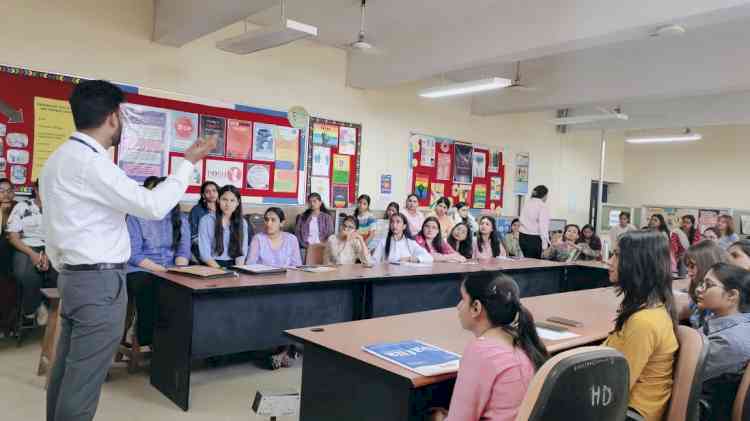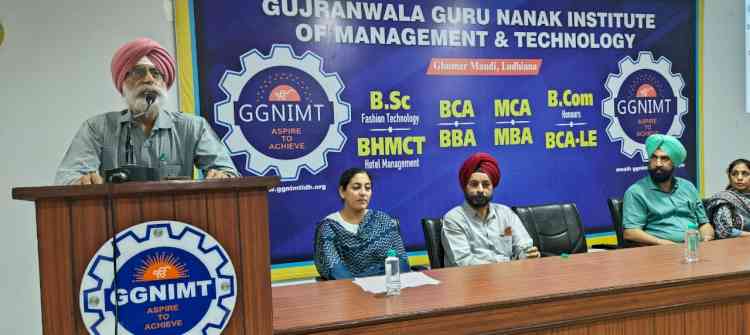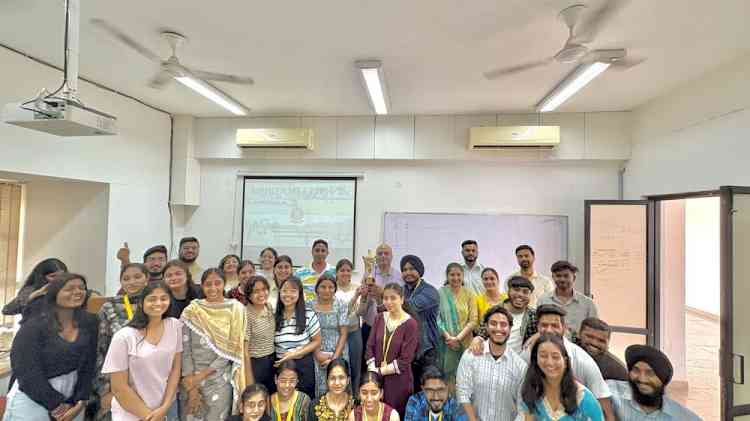Short-Term Course on “Artificial Intelligence in Higher Education” concludes at Panjab University
A Short-Term Course (STC) on “Artificial Intelligence in Higher Education” concluded today at Panjab University.

Chandigarh, February 24, 2025: A Short-Term Course (STC) on “Artificial Intelligence in Higher Education” concluded today at Panjab University.
The week-long course was organised by Prof( Dr) Sonal Chawla Department of Computer Science and Applications, Panjab University as Course Coordinator in Collaboration with UGC MMTTC (Malaviya Mission Teacher Training Centers), Panjab University, Chandigarh, from February 18-24, 2025. The course offered valuable insights into the transformative role of artificial intelligence in academia. As many as seventy-five Assistant Professors and faculty members from various colleges, universities, and academic institutions across India attended the online course.
The resource persons for the course included distinguished academicians, Deans, Vice-Chancellors, Directors, Professors, accomplished Researchers, and Scientists from various central and state universities and other academic and research institutions, bringing diverse expertise and perspectives to the discussions.
The course extensively covered the impact of AI in higher education, exploring its role in teaching-learning methodologies, student engagement, and assessment strategies. Various sessions focused on the role of AI in academic writing, demonstrating tools that enhance research efficiency, along with AI-driven multilingual solutions, showcasing how technology bridges language barriers in education.
Discussions on AI-powered teaching and learning mechanisms highlighted personalised learning approaches and the ethical considerations of AI in higher education. Concerns related to data privacy, academic integrity, and responsible AI usage were also discussed.
Participants gained valuable insights into AI-driven data analytics and its role in curriculum enhancement and decision-making. The course also shed light on the significance of AI in plagiarism detection and academic honesty.
Many hands-on sessions on cybersecurity, cyberattacks, AI tools for teaching and learning, AI-powered academic data analytics, and instructional delivery equipped participants with practical, live instructional experiences.
Further sessions explored AI’s applications in sustainability, detecting fake academic credentials using machine learning, and research innovation, emphasising AI’s role in predictive analytics for academic success and ensuring authenticity in academia.
The course concluded with thought-provoking discussions on AI ethics, addressing issues of bias, fairness, transparency, and accountability in governance. It underlined AI’s long-term implications on education policies and institutional decision-making, ensuring responsible AI implementation in academia.
The course provided a well-rounded and fruitful perspective on AI’s integration into higher education, combining expert insights on tools and techniques with practical learning experiences. The recommendations from the course report shall be forwarded to UGC for further policy formulations and curriculum designs related to artificial intelligence.
The course participants expressed gratitude to Course Coordinator Prof. (Dr.) Sonal Chawla and UGC MMTTC Programme Director Prof. Jayanti Dutta for conducting an enlightening, insightful, and knowledge-enhancing course on AI’s increasing influence in higher education. Participants appreciated the course’s emphasis on AI-driven teaching methodologies, academic integrity, academic data mining, security issues, and ethical considerations in AI implementation.


 City Air News
City Air News 








